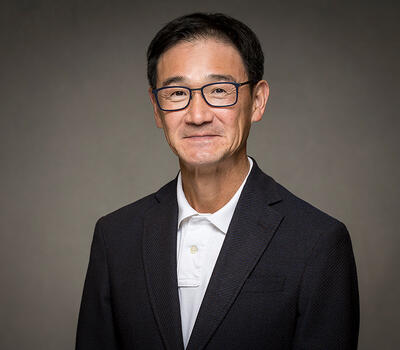Egypt, Germany, Taiwan, Burma — Ben Lee traveled the world as the son of a Korean diplomat. He lived in seven different countries growing up including the US where he finished high school.
“You learn to adjust quickly, and you have to be resourceful,” Lee says, recalling that when they were in Uganda the economy collapsed and the government responded by issuing necessities like sugar and flour, but only to foreigners. “So, I remember my mom trading sugar with our neighbor who had some vegetables.”
Throughout his moves, though, golf remained a constant. He learned to play in Kampala, Uganda when he was 12 years old and it was love at first shot, he says. He was the best golfer in his high school in New York and one of the top players in the city. And though he had dreams of playing professionally, the competition got stiffer at the state level and he realized it would be wiser to get an education.
Lee admits when he entered college he was like many undergraduates who are not sure what they want to do. So, he pursued his second love — math and science — by majoring in mechanical engineering until his brother-in-law suggested that electrical engineering had tremendous potential. He made the switch and hasn’t looked back.
“Working with computers came naturally to me,” he says.

From the beginning one of his research areas has been parallel processing, which was concerned with dual-processors when he was in graduate school but has now expanded to multi-core processors. The basic question is: How do you make computers go faster? And the solution requires knowledge of both computer architecture and software, so he works on both.
He especially likes the challenge of video applications which has led him to delve into wireless networks, where he tackles problems like how to stream video wirelessly within your house so that cables are unnecessary.
But it is teaching that Lee finds most rewarding. In fact, he knew from the time he was a junior in college that he wanted to be a professor.
“I like the challenge of figuring out each year how to motivate students and convey difficult concepts that are brand new to them. The students really keep you on your toes — what worked five years ago will not work anymore which is what makes it interesting,” Lee says.
Among his teaching awards he prizes the 1994 Loyd Carter Award for Outstanding and Inspirational Teaching the most because it was given to him by his students. He also received the Alumni Professor Award for Outstanding Contribution to the College and the University from the OSU College of Engineering in 2005, and the HKN Innovation Teaching Award from Eta Kappa Nu from the School of Electrical Engineering and Computer Science in 2008.
Throughout his life, Lee has maintained his connection to Korea, although it was hard to retain the language when he was young and attending British or American schools. He returned to Korea to serve out his required military service the year before he finished his PhD at Pennsylvania State University. “It was a difficult time, but in the process I met my wife so it was all worth it,” he says.
Later, he returned to Korea with his wife and two children to spend a sabbatical year. And just as he struggled to keep his Korean when he was young, his daughter temporarily forgot how to speak English after a year of kindergarten in a Korean school.
And although family and work keep Lee busy, he remains an avid golfer.
“I still enjoy golf very much — and after many years of trying to convince my wife to play, she has finally taken it up as well — so we can now enjoy playing golf together,” he says.

